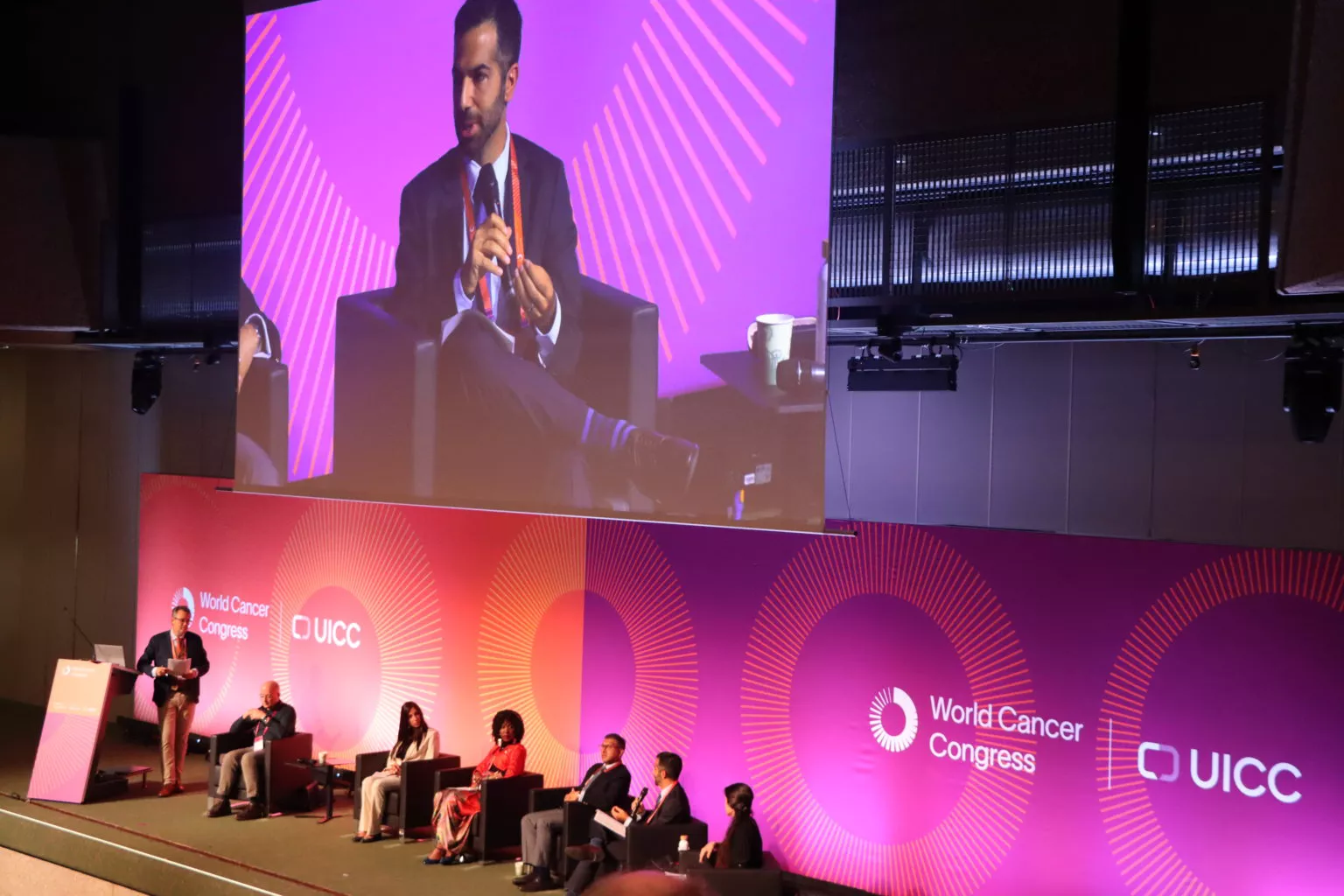The Geneva Cancer Congress, organized by the Union for International Cancer Control (UICC), kicked off with a focus on collaboration among global cancer and healthcare experts. The event, spanning three days, features a wide range of discussions, presentations, and networking opportunities to address key challenges in cancer care.
UICC President, Professor Jeff Dunn, emphasized the need for international cooperation in combating cancer. “We are here to share, learn, and strengthen our bonds in this shared quest to control cancer,” said Dunn, himself a mantle cell lymphoma survivor, reflecting on the role of community support in his recovery. He lauded the congress’ partners, including the World Health Organization (WHO) and the International Agency for Research on Cancer (IARC), for their contributions to the fight against cancer.
The opening ceremony featured addresses from several global health leaders. Dr. Elisabete Weiderpass, Director-General of IARC, sounded an alarm over the growing number of cancer cases, particularly in low- and middle-income countries, forecasting a 77% rise by 2050. She called for preventive measures, such as tobacco control and HPV vaccination, to mitigate the rising cancer burden.
WHO Director-General Dr. Tedros Adhanom Ghebreyesus, via video message, acknowledged advancements in national cancer programs but urged for more political leadership and accelerated action. He stressed the importance of achieving Sustainable Development Goals (SDGs) related to non-communicable diseases, including cancer. European Union Health Commissioner Stella Kyriakides echoed these sentiments, presenting Europe’s commitment through the EU’s Beating Cancer Plan, which prioritizes prevention and improving the quality of life for survivors.
Global Cancer Impact: Orphaning and Mortality Disparities
Research presented at the congress shed light on the global impact of cancer-related deaths. A study by IARC revealed that in 2020, 5.5 million men died from cancer, resulting in 1.4 million children losing their fathers. This research builds on a 2022 study which found that one million children lose their mothers to cancer annually. The findings underscore the disproportionate impact on regions like Asia and Africa and the urgent need for strategies to reduce preventable cancer deaths.
Additionally, the congress highlighted disparities in cancer mortality rates. A UICC statement revealed that 3.4 million cancer deaths could be avoided annually if every country matched the performance of the best-performing nations. The study pointed out that stomach, lung, breast, and colorectal cancers accounted for most potentially avoidable deaths, with sub-Saharan Africa and Southeast Asia experiencing the highest disparities.
Another key topic was the pandemic’s impact on cancer diagnosis. A study, based on data from seven countries, indicated a significant reduction in cancer diagnoses—particularly melanoma, breast, prostate, and lung cancers—during early COVID-19 lockdowns. This highlighted the need for healthcare systems to better prepare for future crises.
AI and Technological Advancements in Cancer Care
Artificial intelligence (AI) and technological advancements were also a central focus at the congress. A five-country study in Africa—covering Malawi, Rwanda, Senegal, Zambia, and Zimbabwe—explored the use of AI-based tools for cervical pre-cancer screening. The Automated Visual Evaluation (AVE) tool showed significantly higher sensitivity in detecting pre-cancerous lesions compared to traditional methods. UICC emphasized that AI could be a game-changer in resource-limited settings, though some trade-offs in specificity were noted.
Cancer Care in Conflict Zones
A poignant issue addressed at the congress was cancer care in conflict zones, with a particular focus on Gaza. WHO’s cancer lead, Dr. Andre Ilbawi, discussed the severe challenges cancer patients face in conflict regions, where already fragile healthcare systems are pushed to the brink. Ilbawi described how the lack of essential medicines and disrupted care pathways exacerbate the plight of cancer patients in these areas.
“The first step in areas of conflict is preparedness,” said Ilbawi, stressing the importance of setting up funds and evacuation protocols for critically ill patients. Last week, WHO evacuated around 100 Gaza patients to the UAE for medical treatment, marking one of its most significant efforts to date.
Ilbawi also highlighted the unique challenges in Gaza compared to other conflict zones. While patient evacuations were more smoothly managed in Ukraine, Gaza’s complex political landscape has made similar efforts difficult. He underscored the importance of building sustainable healthcare systems that integrate cancer care, moving beyond temporary solutions.
At a panel titled “Leaving No One Behind: Advancing Equity for Refugees, Displaced People, and Underprivileged Communities,” Carlos Rodriguez-Galindo of St. Jude Children’s Research Hospital stressed the need for rapid international mobilization in crisis situations. Drawing comparisons between Gaza and Ukraine, he noted that having dedicated personnel on the ground was crucial for ensuring cancer patients received the care they needed.
The panelists reiterated the importance of multilateralism and international cooperation to address the healthcare needs of cancer patients in conflict zones. They also called for upholding international laws protecting healthcare workers and patients during times of crisis.
The UICC announced that the next World Cancer Congress will take place in Hong Kong in 2026, with future leaders’ summits planned for Australia and other low- and middle-income countries.
Looking Ahead
The congress highlighted the urgency of addressing global cancer disparities and the need for innovative approaches, such as AI and international collaboration, to improve cancer care. As conflict zones and resource-limited settings continue to face significant challenges, global cooperation remains crucial in the fight against cancer.
Related articles:
Can Enlarged Prostate Cause Prostate Cancer?
Hormone Replacement Therapy: A Guide to Continuous Combined HRT
Besides Alcohol: What Causes Liver Damage?


